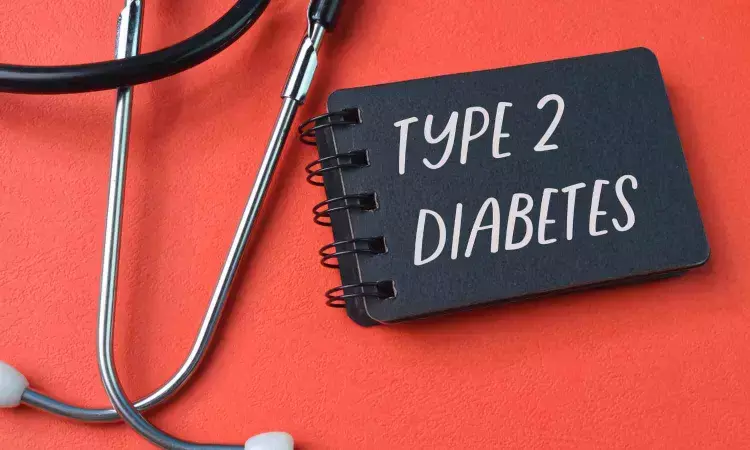- Home
- Medical news & Guidelines
- Anesthesiology
- Cardiology and CTVS
- Critical Care
- Dentistry
- Dermatology
- Diabetes and Endocrinology
- ENT
- Gastroenterology
- Medicine
- Nephrology
- Neurology
- Obstretics-Gynaecology
- Oncology
- Ophthalmology
- Orthopaedics
- Pediatrics-Neonatology
- Psychiatry
- Pulmonology
- Radiology
- Surgery
- Urology
- Laboratory Medicine
- Diet
- Nursing
- Paramedical
- Physiotherapy
- Health news
- Fact Check
- Bone Health Fact Check
- Brain Health Fact Check
- Cancer Related Fact Check
- Child Care Fact Check
- Dental and oral health fact check
- Diabetes and metabolic health fact check
- Diet and Nutrition Fact Check
- Eye and ENT Care Fact Check
- Fitness fact check
- Gut health fact check
- Heart health fact check
- Kidney health fact check
- Medical education fact check
- Men's health fact check
- Respiratory fact check
- Skin and hair care fact check
- Vaccine and Immunization fact check
- Women's health fact check
- AYUSH
- State News
- Andaman and Nicobar Islands
- Andhra Pradesh
- Arunachal Pradesh
- Assam
- Bihar
- Chandigarh
- Chattisgarh
- Dadra and Nagar Haveli
- Daman and Diu
- Delhi
- Goa
- Gujarat
- Haryana
- Himachal Pradesh
- Jammu & Kashmir
- Jharkhand
- Karnataka
- Kerala
- Ladakh
- Lakshadweep
- Madhya Pradesh
- Maharashtra
- Manipur
- Meghalaya
- Mizoram
- Nagaland
- Odisha
- Puducherry
- Punjab
- Rajasthan
- Sikkim
- Tamil Nadu
- Telangana
- Tripura
- Uttar Pradesh
- Uttrakhand
- West Bengal
- Medical Education
- Industry
Low glycaemic index and low glycaemic load diets may avert type 2 diabetes development: Study

Canada: In a multinational cohort spanning five continents, a higher risk of incident type 2 diabetes was observed with diets having a high glycaemic index (GI) and a high glycaemic load (GL).
The findings from the PURE study published in The Lancet Diabetes and Endocrinology suggest that consuming low GI and GL diets might prevent type 2 diabetes (T2D) development.
The glycemic index assigns a numeric score to a food based on how drastically it raises blood sugar. The foods are ranked on a scale of 0 to 100; pure glucose (sugar) has a value of 100. The lower the glycemic index of a food, the slower blood sugar rises after eating that food. The more processed a food is, the higher its GI, and the more fat or fiber in a food, the lower its GI. The glycaemic load rates carbohydrates according to the glycaemic index and the amount of carbohydrates in the food.
The association between the glycaemic load and glycaemic index with type 2 diabetes incidence is controversial. Therefore, Victoria Miller, Population Health Research Institute, McMaster University, Hamilton, ON, Canada, and colleagues aimed to evaluate this association in an international cohort with diverse glycaemic index and glycaemic load diets.
For this purpose, the researchers performed a prospective cohort study (PURE study) of 127 594 adults aged 35–70 years, from 20 high-income, middle-income, and low-income countries. Using country-specific validated food frequency questionnaires, they assessed diet at baseline using country-specific validated food frequency questionnaires.
The glycemic index and glycemic load were estimated based on the intake of seven categories of carbohydrate-containing foods. Participants were categorized into quintiles of GI and GL.
The study's primary outcome was incident type 2 diabetes. Multivariable Cox Frailty models with random intercepts for the study center were used to calculate hazard ratios (HRs).
The study led to the following findings:
· During a median follow-up of 11·8 years, 5·7% incident cases of type 2 diabetes occurred.
· In multivariable-adjusted analyses, a diet with a higher glycaemic index was significantly associated with a higher risk of diabetes (quintile 5 vs quintile 1; HR 1·15).
· Participants in the highest quintile of the glycaemic load had a higher risk of incident type 2 diabetes than those in the lowest quintile (HR 1·21).
· The glycaemic index was more strongly associated with diabetes among individuals with a higher BMI (quintile 5 versus quintile 1; HR 1·23) than those with a lower BMI (quintile 5 versus quintile 1; 1·10).
In conclusion, diets with a high GI and GL were associated with a higher risk of incident type 2 diabetes in the multinational cohort. The findings suggest that consuming low GI and GL diets might prevent diabetes development.
Reference:
Miller V, Jenkins DA, Dehghan M, Srichaikul K, Rangarajan S, Mente A, Mohan V, Swaminathan S, Ismail R, Luz Diaz M, Ravindran RM, Zatonska K, Bahonar A, Altuntas Y, Khatib R, Lopez-Jaramillo P, Yusufali A, Yeates K, Chifamba J, Iqbal R, Yusuf R, Catherina Swart E, Bo H, Han G, Li X, Alhabib KF, Rosengren A, Avezum A, Lanas F, Yusuf S; Prospective Urban and Rural Epidemiology (PURE) study investigators. Associations of the glycaemic index and the glycaemic load with risk of type 2 diabetes in 127 594 people from 20 countries (PURE): a prospective cohort study. Lancet Diabetes Endocrinol. 2024 Apr 5:S2213-8587(24)00069-X. doi: 10.1016/S2213-8587(24)00069-X. Epub ahead of print. PMID: 38588684.
Dr Kamal Kant Kohli-MBBS, DTCD- a chest specialist with more than 30 years of practice and a flair for writing clinical articles, Dr Kamal Kant Kohli joined Medical Dialogues as a Chief Editor of Medical News. Besides writing articles, as an editor, he proofreads and verifies all the medical content published on Medical Dialogues including those coming from journals, studies,medical conferences,guidelines etc. Email: drkohli@medicaldialogues.in. Contact no. 011-43720751


